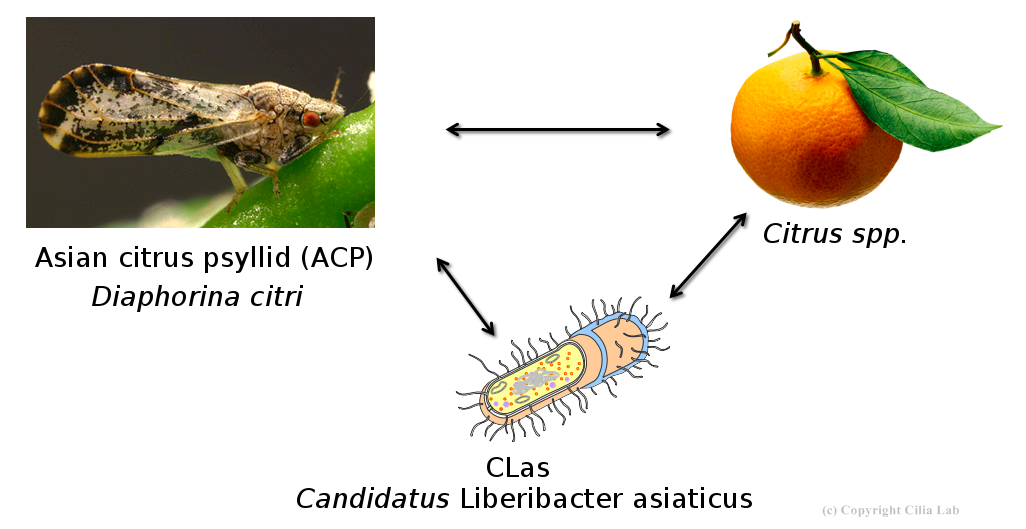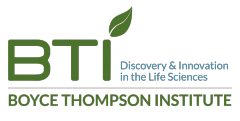This site uses cookies to provide logins and other features. Please accept the use of cookies by clicking Accept.
The citrus greening disease (also called huanglongbing) has devastated the Florida citrus industry, and is now in CA and TX. Fruit from infected trees is safe to eat, but production is reduced so much that citrus may cease to be inexpensive and broadly available. If you are a citrus lover you should know that massive research efforts, including this project, are underway to keep citrus affordable and plentiful. See impact on US production..

News
These eleven papers are a part of a series of Data Releases crediting the outputs of a student-focused and community-driven manual annotation project for curating gene models. Diaci v3.0 is the current genome version and is being used for annotation on Apollo. Please get in touch using the contact form for write access.
We present an improved and highly contiguous de novo Diaci version 3.0 assembly based on proximity ligation-based (Hi-C) scaffolding of a non-redundant unitigs from the previous Diaci version 2 genome assembly. The genome and associated annotation were released and first described in a preprint on December 10, 2019.
USDA National Institute of Food and Agriculture (NIFA) recently awarded 12 grants totaling over $45 million for research to combat Huanglongbing (HLB). There are more details at the CRIS site about projects funded in FY2020. Press release for the NMC led project can be found at the Texas A&M Kingsville website.
USDA NIFA Research
Developing novel biological delivery methods for therapeutic agents and other biomolecules to enhance production of citrus
Symbionts, grafted to crop plants (surgically attached to connect to plant tissues) for biomolecule delivery throughout the plants, produce therapeutic molecules in a manner which optimizes their commercial benefits.
Symbionts have been shown to alleviate citrus greening symptoms in small citrus trees in the greenhouse, and discussions with APHIS are underway to conduct field evaluations. More
Accelerating implementation of HLB-tolerant hybrids as new commercial cultivars for fresh and processed citrus
This project includes validation of HLB-tolerance in the field, identification of genetic markers associated with tolerance to expedite varietal screening, and characterization of the fruit and juice quality of the tolerant selections.
Tasting panel tests confirmed the superior orange-like flavor of U.S. SunDragon and Sugar Belle, and verified their suitability for blending with sweet-orange juice. More
Development of antimicrobial peptides from citrus to kill the CLas bacterium causing HLB
Our overall goal is to suppress CLas and maintain health in HLB-affected citrus. All organisms produce many peptides (small proteins), which serve many functions, including some unrelated to disease resistance.
These citrus-derived AMPs have shown excellent activity against CLas in the lab and greenhouse. The goal of this NIFA project is to evaluate their efficacy as killing agents against CLas and therapeutics for existing infected trees to sustain commercial citrus production. In addition, we are developing trees that themselves express these AMPs to provide a form of HLB resistance. More
Annotation Updates
C-Type Lectins
Report and protein sequences
C-Type Lectins(CTLs) are calcium dependent extracellular proteins involved in recognition of glycans. A total of 10 models were found and annotated. Refer to C-type lectin gene report for further details. The Basecamp page and FTP site contain the data sets and instructions for annotation.
Relish-like Proteins
Report and protein sequences
Relish-like proteins are transcription factors and are inlvolved in Imd pathway. The Basecamp page and FTP site contain the data sets and instructions for annotation.
Galactoside-Binding Lectins
Report and protein sequences
Galactoside-Binding Lectins (GALEs) or galectins bind to beta-galactoside sugars. GALEs are implicated in innate immunity as they might be involved in microbial recognition and/or phagocytosis. The Basecamp page and FTP site contain the data sets and instructions for annotation.
Events
California Citrus Conference in Visalia, CA
The Citrus Research Board (CRB) is organizing the California Citrus Conference on October 19, 2022 in Visalia, California at the Visalia Convention Center.
IS-CHPP 2022 meeting in Clearwater, FL
The theme is "Confronting the Phloem-Colonizing Bacterial Pathosystems Together". More information can be found at the The International Society For Citrus Huanglongbing And Phloem-colonizing Bacterial Pathosystems website. Dates are October 25-28th, 2022.
Your Lists
Public Lists
List Contents
List Validation Report: Failed
Elements not found:
Optional: Add Missing Accessions to A List
Mismatched case
Click the Adjust Case button to align the case in the list with what is in the database.
Multiple mismatched case
Items listed here have mulitple case mismatches and must be fixed manually. If accessions need to be merged, contact the database directly.
List elements matching a synonym
Multiple synonym matches
Fuzzy Search Results
Synonym Search Results
Available Seedlots
Your Datasets
Public Datasets
Dataset Contents
Dataset Validation Failed
Elements not found:
Your Calendar
Having trouble viewing events on the calendar?
Are you associated with the breeding program you are interested in viewing?
Add New Event
Event Info
| Attribute | Value |
|---|---|
| Project Name: | |
| Start Date: | |
| End Date: | |
| Event Type: | |
| Event Description: | |
| Event Web URL: |
Edit Event
Login
Forgot Username
If you've forgotten your username, enter your email address below. An email will be sent with any account username(s) associated with your email address.
Reset Password
To reset your password, please enter your email address. A link will be sent to that address with a link that will enable you to reset your password.
Create New User
Working








